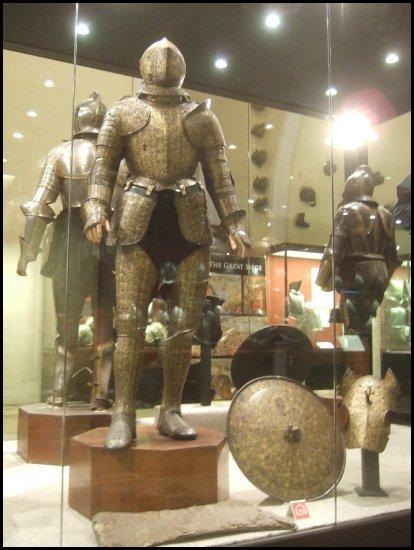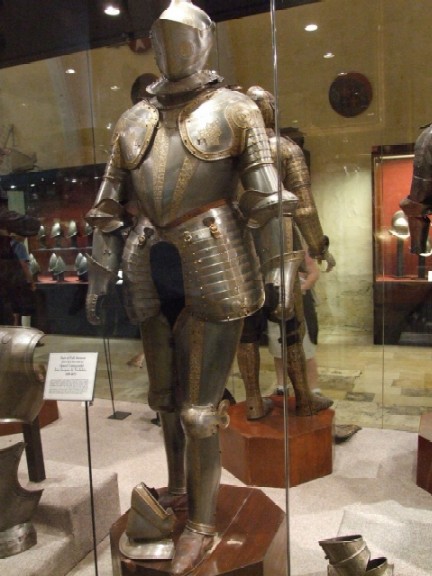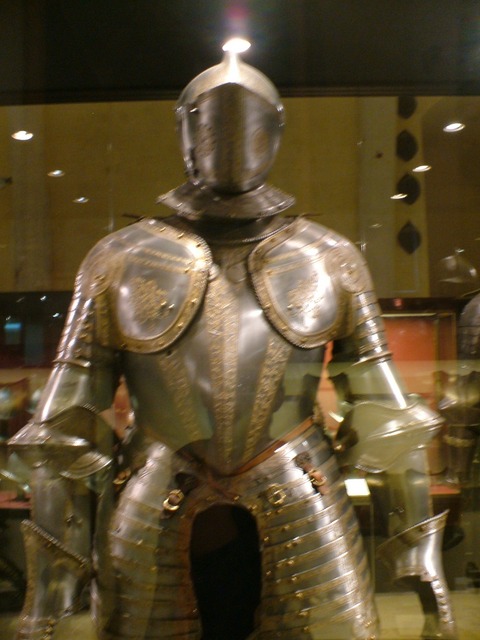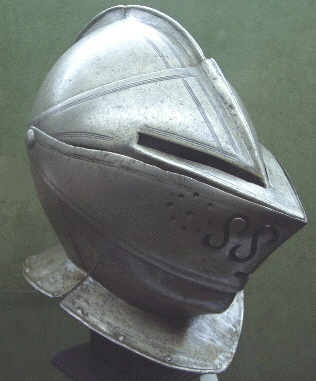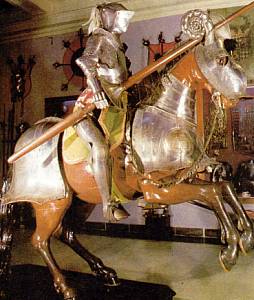Posts: 782 Location: Upstate New York
Tue 20 Feb, 2007 8:40 am
Rodolfo,
Are you positive that these armours were definitely worn by the Knights of Malta? They appear to be "lordly" armours to me; lavish armour made for the nobility. I know a lot of the earlier armour from the Rhodes Armoury, left behind by the Knights of St. John when they left Rhodes, is rather plain. Now, the higher ranking Knights of Malta would probably were fairly decorated armour, just like the regular nobility. I just don't know how decorated the armour for the "rank-and-file" would be.
As for how common the use of armour was; there are references to Knights of Saint John wearing armour in combat during the siege of Malta in 1564. According to Desmond Seward in The Monks of War, many brethren must have worn half-armour for fighting on foot, and some may have worn brigandine. Seward, and period art, also hint at full harness being worn during the three sieges of Rhodes in the fifteenth century and early sixteenth century.
There are some armours, such as the "puffed and slashed" armour and certain armours with elaborate embossing, that were made mostly for parade.
By the way, a "horse's helmet", armour that protected the horse's forehead and face, is called a shaffron (or chamfron, or chanfron). It was possibly the most common piece of plate armour for the horse, used in battle and in tournament and parade.
Below, I've included a photo from the Royal Armouries of a shaffron made for Robert Dudley, Earl of Leicester, one of Elizabeth I's favorites.
Stay safe!
 Attachment: 33.54 KB
Attachment: 33.54 KB
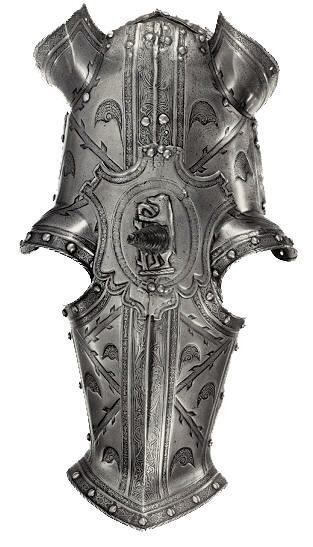
Shaffron made for Robert Dudley, Earl of Leicester.
Copyright Board of Trustees of the Armouries.
